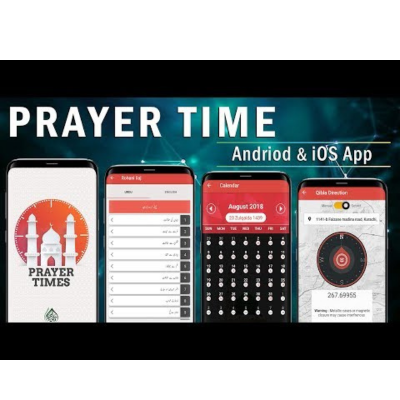Ramadan is a sacred month for Muslims worldwide, marked by fasting, prayers, and spiritual reflection. Observing the fast from dawn to sunset requires discipline and devotion, and following the Ramadan timetable helps ensure that fasting, Suhoor (pre-dawn meal), and Iftar (meal to break the fast) are observed at the correct times. Having an accurate Ramadan timetable is essential for keeping track of prayer times and meal schedules, allowing individuals to observe the holy month in the best possible way.
Understanding the Importance of the Ramadan Timetable
The Ramadan timetable serves as a structured guide for Muslims, ensuring that they adhere to fasting regulations and prayer times. Since fasting begins at Fajr (pre-dawn prayer) and ends at Maghrib (sunset prayer), knowing these precise timings is crucial. The timetable also includes other important prayers, such as Dhuhr, Asr, and Isha, which hold great significance during this spiritual month. With varying sunrise and sunset times across different locations, a region-specific Ramadan timetable ensures accuracy in observance.
How the Ramadan Timetable is Determined
Islamic scholars and institutions determine the Ramadan timetable based on astronomical calculations and moon sightings. The timings for Suhoor and Iftar differ across regions, which is why it is important to rely on verified sources such as mosques, Islamic centers, or official websites that provide accurate prayer schedules. Many Muslims also use mobile applications and online platforms to access their local Ramadan timetable, making it easier to stay on track with fasting and prayers.
The Role of Suhoor and Iftar in the Ramadan Timetable
Suhoor and Iftar are significant parts of the fasting routine, and their timings must be carefully followed. Suhoor is the pre-dawn meal consumed before Fajr prayer, providing necessary energy and hydration to sustain fasting throughout the day. A well-balanced Suhoor meal consists of protein, fiber, and healthy fats to maintain energy levels. Drinking enough water before dawn is also crucial to prevent dehydration.
Iftar is the meal that breaks the fast at sunset. Traditionally, Muslims break their fast with dates and water, following the Sunnah of Prophet Muhammad (PBUH). This meal is followed by Maghrib prayer and a wholesome dinner, including nutritious foods that replenish the body. A proper Ramadan timetable ensures that both Suhoor and Iftar are observed at the right times, enhancing the fasting experience.
Prayer Timings in the Ramadan Timetable
During Ramadan, prayer holds a central role in strengthening one's faith and devotion. The five daily prayers—Fajr, Dhuhr, Asr, Maghrib, and Isha—are observed at specific times, and a Ramadan timetable provides an accurate schedule for these prayers. Additionally, Taraweeh prayers, performed after Isha, are unique to Ramadan and hold great spiritual rewards. Many mosques organize Taraweeh prayers where the Quran is recited in congregation, offering a deep sense of community and spiritual enrichment.
Finding an Accurate Ramadan Timetable
To ensure that your fasting and prayer schedule aligns with your region, it is important to find a reliable Ramadan timetable. Many Islamic organizations publish official Ramadan schedules based on local time zones. Mosques also provide printed timetables for their communities. Moreover, various mobile applications and websites offer customized Ramadan timetables, allowing users to access prayer and fasting times specific to their location.
Tips for Following the Ramadan Timetable Effectively
Consistency in following the Ramadan timetable can make fasting easier and more fulfilling. Planning Suhoor and Iftar meals in advance helps maintain a balanced diet and prevents last-minute rushes. Setting reminders for prayer times ensures that none of the five daily prayers are missed. Using a prayer app with a built-in Ramadan timetable can be highly beneficial in staying organized throughout the month.
The Spiritual Significance of Observing the Ramadan Timetable
Beyond fasting and meal schedules, the Ramadan timetable also encourages discipline, self-reflection, and spiritual growth. This sacred month is an opportunity to strengthen faith, seek forgiveness, and develop a deeper connection with Allah. By adhering to the Ramadan timetable, Muslims can make the most of this blessed month, ensuring that their daily routine aligns with religious obligations and spiritual goals.
Conclusion
Observing Ramadan with sincerity and devotion requires a well-structured routine, and having an accurate Ramadan timetable is essential for managing fasting, prayers, and meals. Whether obtained from mosques, Islamic websites, or mobile apps, a reliable Ramadan timetable helps Muslims fulfill their religious duties effectively. By following the Ramadan timetable with dedication, one can fully embrace the spiritual essence of this holy month, making it a time of faith, discipline, and personal growth.

Comments